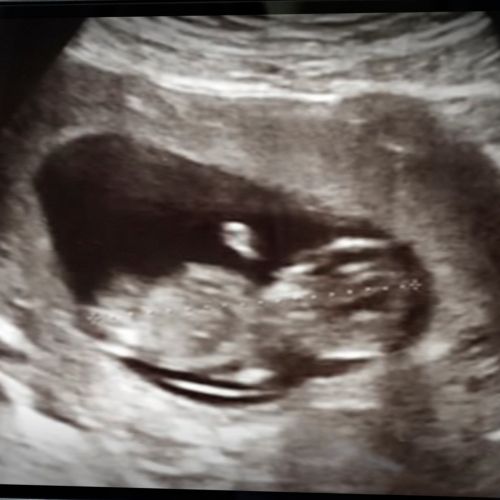UCLA-led team’s research finds COVID-19 immunization during early pregnancy does not pose a heightened risk of birth defects
Peer-reviewed studies show safety of vaccinations during National Immunization Awareness Month.

A series of three related and recently published studies by an international team led by UCLA Fielding School of Public Health researchers found that COVID-19 vaccination during early pregnancy is not associated with an increased prevalence of major structural birth defects in infants.
“These birth defects were not elevated among infants born to people vaccinated in the first 20 weeks of pregnancy; moreover, the prevalence of birth defects was not modified by maternal SARS-CoV-2 infection, nor the receipt other maternal vaccines,” said Dr. Annette Regan, associate professor in the UCLA Fielding School’s Department of Epidemiology and co-author of all three research studies. “These results support the safety of COVID-19 vaccination in early pregnancy.”
The peer-reviewed studies, conducted by a team of researchers from the United States and Australia, were all published in recent weeks, and demonstrate both the safety of COVID-19 vaccination for expectant mothers and possible shortfalls in delivery of such preventative care for at-risk populations; the linked works also demonstrate the real-world impact of research led by UCLA scholars, and is especially timely given that August is National Immunization Awareness Month, experts said.
“This kind of research with impact is exactly what the experts at the University of California, and our academic partners, can deliver when it comes to these very complex questions,” said Dr. Onyebuchi Arah, a physician and professor in the UCLA Fielding Department of Epidemiology and past president of the Society for Epidemiologic Research, the oldest and largest general epidemiology society in North America. “Vaccination is critically important to prevent diseases and severe illness; widespread immunization has led to the eradication of smallpox worldwide, the elimination of wild poliovirus in the U.S., and the prevention of sometimes deadly infectious diseases including COVID-19, measles, and many others.”
Vaccination and immunization are related terms, but describe somewhat different processes; according to the U.S. Centers for Disease Control (U.S. CDC), a person becomes immune to (or protected from) a disease when their body creates specific antibodies to fight that disease. Vaccines contain ingredients that help the body build this immunity, experts said.
The three peer-reviewed studies, all by a team of researchers affiliated with UCLA, the University of San Francisco, the Baylor College of Medicine (Houston, Texas), and Monash University (Australia), are:
- “COVID-19 Vaccination During Pregnancy and Major Structural Birth Defects,” in the journal Pediatrics, published by the American Academy of Pediatrics, in April, 2025;
- “COVID-19 Antiviral Medication Use Among Pregnant and Recently Pregnant US Outpatients,” in the journal Clinical Infectious Diseases (CID), published by the Infectious Diseases Society of America, in March, 2025;
- “Uptake of Recommended Vaccines During Pregnancy Among Publicly and Privately Insured People in the United States, December 2020–September 2022,” in the American Journal of Public Health (AJPH), published by the American Public Health Association, also in March, 2025.
The Pediatrics study on birth defects found that among 78,052 pregnancies in the U.S. included in the review, 1,248 major structural birth defects (160.6 per 10,000 live births) were identified among unvaccinated mothers, and 199 (156.4 per 10,000 live births) among those vaccinated, which is similar and statistically insignificant. No differences in the prevalence of birth defects were observed with COVID-19 vaccination, or with any COVID-19 vaccine brand.
“The study’s findings are consistent with a growing body of literature supporting the safety of COVID-19 vaccines and their use in pregnancy, including in early periods of gestation. Recent studies from Israel, Britain, the U.S., and Scandinavia, have found no elevated risk of birth defects among infants born to people vaccinated during pregnancy,” said first author Dr. Stacey L. Rowe, a visiting scholar at UCLA Fielding School’s Department of Epidemiology. “Our findings demonstrate that the prevalence of major structural birth defects associated with COVID-19 vaccination is not changed by insurance provider, SARS-CoV-2 infection during pregnancy, or co-administration with other maternal vaccines.”
The research published in CID found that despite U.S. clinical guidelines to treat pregnant persons with COVID-19 illness, low rates of outpatient treatment for COVID-19 during pregnancy were found, indicating possible missed opportunities to treat COVID-19 illness and prevent COVID-19-related hospitalization during pregnancy.
The work published in AJPH found significant disparities in vaccine uptake – including the uptake of COVID-19, influenza, and pertussis vaccines - between those with public and private insurance; this was most apparent for COVID-19 vaccination where uptake reached only 11.8% among those using Medicaid compared with 43% among those with private insurance.
“As COVID-19 can be severe during pregnancy, timely, appropriate treatment could reduce the risk of severe disease and subsequent adverse maternal, fetal, and neonatal adverse outcomes,” said co-author Dr. Flor M. Munoz, a pediatric infectious diseases specialist with the Baylor College of Medicine. “Our findings point to a systematic lack of access to vaccines among publicly insured people, so understanding structural barriers, particularly for Medicaid enrollees, is critical to improving maternal vaccine access.”
Funding
The studies received funding from the National Institute of Allergy and Infectious Diseases, U.S. National Institutes of Health (NIH; grant R01AI169239), and the National Cancer Institute (award NIH/NCI T32 CA009142). The NIH had no role in the conduct of the study or in the decision to publish study findings.

